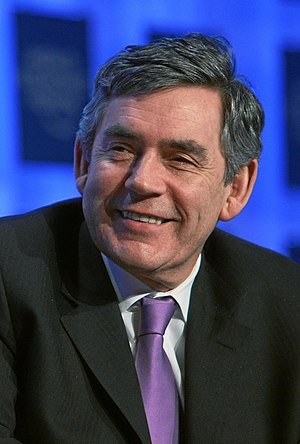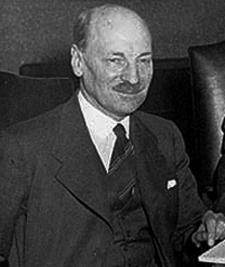So it goes without saying that there's certainly a good reason why, in discussing the Conservative Party of Canada, they call Alberta 'Fortress Alberta'. It's tough to imagine a place so fond of a single political party. In the six elections they've contended under the names Reform, Canadian Alliance or the Conservatives, they've never taken fewer than 22 seats in a province that has a total of either 26 or 28 seats (depending on the year). In fact, there is a seventh: the Reform party comtended the 1988 election, but as a relatively minor party that took no seats. I don't include the 1988 election, because it ruins the narrative: one of the PC imploding spectacularly and two parties being born as a result, one of which is called Reform. Canadian electoral history is divided into pre-1993 and post-1993. So 1988 is 'old-school'. Irrelevant.
Anyway, I've been noticing with surprise that the Liberals seem to be doing rather well in Alberta - 'well' doesn't mean much, of course, as it's inconceivable that they could actually threaten the CPC. But the fact is that they are currently presenting themselves as the only real alternative in Alberta to Harper's party. I was a bit surprised to see this; I know the NDP have tended to do horribly in Alberta, but at least they're a Western party with at least a historical taste for a bit of populism. The Liberals are supposed to be everything Albertans hate about Ottawa, aren't they? Elitist, centralist, resource-stealing, Ontario and Québec controlling the country. Right?
Well, I decided to look at those six elections with the following premise: what would happen if the Reform / CA / CPC party just disappeared? If this party just didn't exist, where would the Albertan vote go?
Now, obviously my techniques here are hardly scientific. What I did was look at each seat that this party won and considered which party came in second. So if, say, the Reform Party took 65% and the Liberals took 15% (with the remaining 20% going to the NDP, the PCs and various other parties and candidates), I say that in the non-Reform world, this seat goes to the Liberals. Now, that's not entirely realistic. The Reform/CA/CPC gets in some ridings enormously high margins of victory, and with such a huge voter base left to redistribute, the numbers are really quite up in the air: and one imagines a fair amount would go to the PCs, despite the animosity those two parties had for each other in the early days.
Still, the results are intriguing. Here they are:
If we do have an election this year, Alberta's not going to be the most interesting story. It'll still be CPC all the way, with perhaps a few seats here or there (likely in Edmonton) being competitive. But if current trends hold, the NDP won't be what they were in 2008, when they made significant inroads as the main alternative to the Conservatives in Alberta. Odd that no-one even noticed that.
Anyway, I've been noticing with surprise that the Liberals seem to be doing rather well in Alberta - 'well' doesn't mean much, of course, as it's inconceivable that they could actually threaten the CPC. But the fact is that they are currently presenting themselves as the only real alternative in Alberta to Harper's party. I was a bit surprised to see this; I know the NDP have tended to do horribly in Alberta, but at least they're a Western party with at least a historical taste for a bit of populism. The Liberals are supposed to be everything Albertans hate about Ottawa, aren't they? Elitist, centralist, resource-stealing, Ontario and Québec controlling the country. Right?
Well, I decided to look at those six elections with the following premise: what would happen if the Reform / CA / CPC party just disappeared? If this party just didn't exist, where would the Albertan vote go?
Now, obviously my techniques here are hardly scientific. What I did was look at each seat that this party won and considered which party came in second. So if, say, the Reform Party took 65% and the Liberals took 15% (with the remaining 20% going to the NDP, the PCs and various other parties and candidates), I say that in the non-Reform world, this seat goes to the Liberals. Now, that's not entirely realistic. The Reform/CA/CPC gets in some ridings enormously high margins of victory, and with such a huge voter base left to redistribute, the numbers are really quite up in the air: and one imagines a fair amount would go to the PCs, despite the animosity those two parties had for each other in the early days.
Still, the results are intriguing. Here they are:
- In 1993, Reform took 22 of Alberta's 26 seats, and the Liberals took the other 4. In a non-Reform Alberta, the Liberals would dominate, taking 19 while the remaining 7 would go to the PCs.
- In 1997, Reform increased their seat count in Alberta, getting 24 and leaving only two to the Liberals. but a non-Reform Alberta would look exactly the same as it did in 1993: 19 Liberal seats, 7 PC seats.
- And how weird is this: in 2000, the renamed Canadian Alliance got 23 seats, while the Liberals took 2 and the PCs took 1. But without the CA? Well, we're starting to see a trand here, but 19 Liberal seats and 7 PC seats. Any hope for long-term trends dies here though, along with the PC party.
- In 2004, the newly-minted Conservative Party of Canada took 26 seats to the Liberals' 2 (a seat redistribution gave Alberta an added two seats). Amazingly, if there were no CPC, all 28 seats would have gone Liberal. So the Liberals being the main opposition to the Conservatives is evidently nothing new.
- In 2006, the Conservatives made a clean sweep of Alberta: all 28 seats. A non-CPC landscape (so this, the second-place finishers across the province) are a bit more interesting, though: the Liberals would have 18 seats, the NDP 8, the Greens 1 and one seat would go to an independent.
- The most recent election a near sweep for the Conservatives: 27 seats and just one for the NDP. There's a sea change below the water level, though. An Alberta sans Harper would give 16 seats to the NDP, 8 to the Liberals, 3 to the Greens and 1 to an independent. Intriguing stuff.
If we do have an election this year, Alberta's not going to be the most interesting story. It'll still be CPC all the way, with perhaps a few seats here or there (likely in Edmonton) being competitive. But if current trends hold, the NDP won't be what they were in 2008, when they made significant inroads as the main alternative to the Conservatives in Alberta. Odd that no-one even noticed that.






![Reblog this post [with Zemanta]](http://img.zemanta.com/reblog_e.png?x-id=0e7450d9-e449-4e8e-8977-8ce7d0b29b63)

![Reblog this post [with Zemanta]](http://img.zemanta.com/reblog_e.png?x-id=b6f986dd-3995-4a2a-91f7-0c56b313fba1)

![Reblog this post [with Zemanta]](http://img.zemanta.com/reblog_e.png?x-id=01aa8066-480e-4779-832f-e92abc8bd54e)